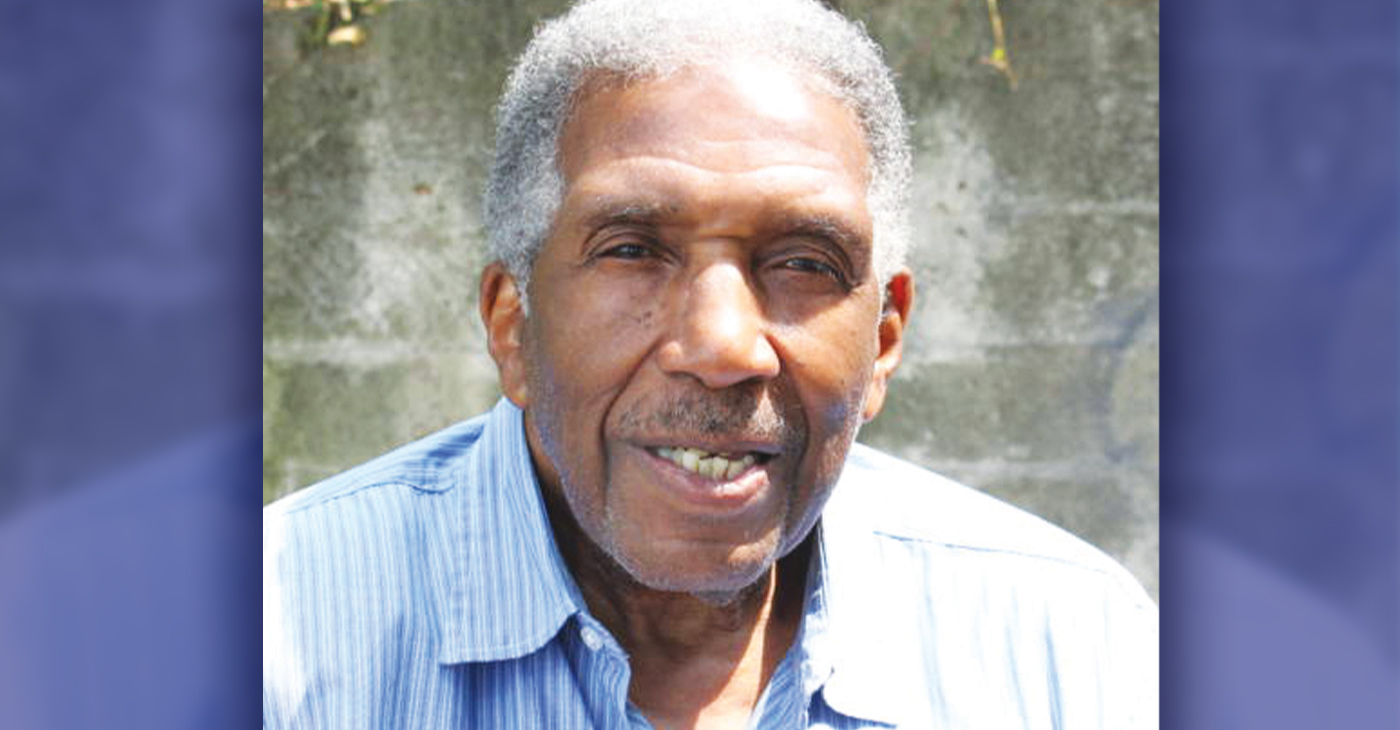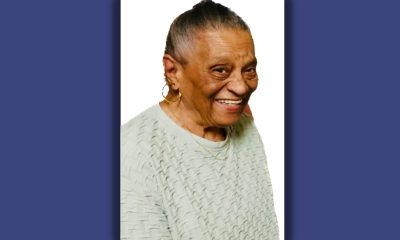Activism
COMMENTARY: Vote ‘No’ on Props 26 & 27: Both Are Bad for California
In respect for Native sovereignty, voters previously supported the establishment of Indian gaming. However, neither of the current measures have significant Indian support.

By James. E. Vann
Propositions 26 and 27 on the November ballot appear to be related, but their differences are substantial, and both are exceedingly harmful.
Proposition 26 would result in vast expansion of gambling methods within American Indian lands, with a new extension to California racetracks.
Proposition 27 would result in vast expansion of present gaming methods beyond Indian lands, with no limitations, and would add the authorization of ‘online’ gambling.
In respect for Native sovereignty, voters previously supported the establishment of Indian gaming. However, neither of the current measures have significant Indian support.
Proposition 26
This measure, somewhat related but unlike Proposition 27, was initiated by a small group of leaders of the largest tribes. Their motivation is their personal enrichment, not from either demand or need. The currently authorized program of permitted gaming methods at Indigenous casino sites is constitutionally limited. Proposition 26 would remove the present restrictions and permit unlimited gambling methods and selections at casino sites and at California racetracks. Methods would include wagering on sports events, like horse racing, sports teams, auto racing, boxing, wrestling, and a host of events broadcast into casino platforms.
The institution of Indigenous casinos has been a needed boon and supplement to mandated federal and state financial assistance that is perennially insufficient. The result of tribal-sponsored gaming – currently earning hundreds of millions annually — has brought tremendous uplift in the political, economic, health, and social life of Indian tribes and peoples. Casino profits are shared with non-casino tribes and these efforts, though lagging, are continuing and constantly improving.
While Indian casinos are thriving and producing admirable widespread improvements, tribal leaders of some of the largest casinos initiated Proposition 26 with the goal of slyly piggy-backing on the possible success of Proposition 27, solely due to greed, not need for new, unlimited revenue. VOTE ‘NO.’
Proposition 27
Proposition 27 was qualified for the ballot by deceptive propaganda. Paid signature collectors told signers that “this new measure will raise money to end homelessness in California.” Proposition 27 was not initiated, nor promoted by California Indian tribes, but by out-of-state corporations that sought to take advantage of the universal desire of California voters to end homelessness together with the compassion of state voters to lift up the plight of California’s Native peoples from the violent repression of the past.
The Indian Gaming Regulatory Act of 1988 correctly acknowledged the sovereignty of Indigenous people and the right of tribes to operate gambling casinos on tribal land. This Act has successfully improved the quality of life for Indian tribes and produces millions in revenues that is shared among both casino and non-casino tribes, which bureaucratic federal and state government financial assistance could never replicate.
Proposition 27 would astronomically expand to unlimited types of gambling well beyond being confined to casinos on Indian land to online phenomena available to everyone, including minors with a cell phone, or varieties of digital devices. Arguments for the measure blatantly lie in many ways:
- That revenue from online gaming will uplift poorer, non-casino Indian tribes. Impartial analysis shows that at least 90% of revenue from the expansion will go into the pockets of the out-of-state carpetbaggers who wrote the measure specifically for their selfish enrichment;
- That revenue from the measure will end homelessness. Besides there being little revenue to allocate, voters need only to recall that the “selling point” years ago for approving the California State Lottery was the promise that lottery revenue “would forever end the problem of funding education throughout the state;”
- That minors will not be able to gamble online. No procedures are indicated that will weed out anyone with a digital device from online access.
Additionally, because Blacks, people of color, and those of lower income are lured in larger numbers to games of chance with the hope of improving their financial status, Proposition 27 would aggravate economic inequality and insecurity. The availability of unlimited online gaming opportunities will provide increased attractions that will further worsen the already weak financial condition of marginalized people.
Practically all California Indian Council tribes oppose Proposition 27 as a boondoggle that will proliferate gambling throughout California life and institutions degrading the lifestyles of minors and the elderly.
Through this new, deceptive measure, the sponsoring out-of-state corporations will realize uncountable wealth with practically nothing positive accruing to California, its residents, or its many intractable issues.
VOTE “NO.”
James E. Vann is a former architect and advocate for social justice housing. He is also a co-founder of the Oakland Tenants Union (OTU) and Coalition of Advocates for Lake Merritt (CALM).
Activism
Oakland Post: Week of April 17 – 23, 2024
The printed Weekly Edition of the Oakland Post: Week of April 17 – 23, 2024

To enlarge your view of this issue, use the slider, magnifying glass icon or full page icon in the lower right corner of the browser window. ![]()
Activism
Oakland Schools Honor Fred Korematsu Day of Civil Liberties
Every Jan. 30, OUSD commemorates the legacy of Fred Korematsu, an Oakland native, a Castlemont High School graduate, and a national symbol of resistance, resilience, and justice. His defiant stand against racial injustice and his unwavering commitment to civil rights continue to inspire the local community and the nation. Tuesday was “Fred Korematsu Day of Civil Liberties and the Constitution” in the state of California and a growing number of states across the country.

By Post Staff
Every Jan. 30, OUSD commemorates the legacy of Fred Korematsu, an Oakland native, a Castlemont High School graduate, and a national symbol of resistance, resilience, and justice.
His defiant stand against racial injustice and his unwavering commitment to civil rights continue to inspire the local community and the nation. Tuesday was “Fred Korematsu Day of Civil Liberties and the Constitution” in the state of California and a growing number of states across the country.
One OUSD school is named in his honor: Fred T. Korematsu Discovery Academy (KDA) elementary in East Oakland.
Several years ago, founding KDA Principal Charles Wilson, in a video interview with anti-hate organization “Not In Our Town,” said, “We chose the name Fred Korematsu because we really felt like the attributes that he showed in his work are things that the children need to learn … that common people can stand up and make differences in a large number of people’s lives.”
Fred Korematsu was born in Oakland on Jan. 30, 1919. His parents ran a floral nursery business, and his upbringing in Oakland shaped his worldview. His belief in the importance of standing up for your rights and the rights of others, regardless of race or background, was the foundation for his activism against racial prejudice and for the rights of Japanese Americans during World War II.
At the start of the war, Korematsu was turned away from enlisting in the National Guard and the Coast Guard because of his race. He trained as a welder, working at the docks in Oakland, but was fired after the bombing of Pearl Harbor in 1941. Fear and prejudice led to federal Executive Order 9066, which forced more than 120,000 Japanese Americans out of their homes and neighborhoods and into remote internment camps.
The 23-year-old Korematsu resisted the order. He underwent cosmetic surgery and assumed a false identity, choosing freedom over unjust imprisonment. His later arrest and conviction sparked a legal battle that would challenge the foundation of civil liberties in America.
Korematsu’s fight culminated in the Supreme Court’s initial ruling against him in 1944. He spent years in a Utah internment camp with his family, followed by time living in Salt Lake City where he was dogged by racism.
In 1976, President Gerald Ford overturned Executive Order 9066. Seven years later, the 9th Circuit Court of Appeals in San Francisco vacated Korematsu’s conviction. He said in court, “I would like to see the government admit that they were wrong and do something about it so this will never happen again to any American citizen of any race, creed, or color.”
Korematsu’s dedication and determination established him as a national icon of civil rights and social justice. He advocated for justice with Rosa Parks. In 1998, President Bill Clinton gave him the Presidential Medal of Freedom saying, “In the long history of our country’s constant search for justice, some names of ordinary citizens stand for millions of souls … To that distinguished list, today we add the name of Fred Korematsu.”
After Sept. 11, 2001, Korematsu spoke out against hatred and discrimination, saying what happened to Japanese Americans should not happen to people of Middle Eastern descent.
Korematsu’s roots in Oakland and his education in OUSD are a source of great pride for the city, according to the school district. His most famous quote, which is on the Korematsu elementary school mural, is as relevant now as ever, “If you have the feeling that something is wrong, don’t be afraid to speak up.”
Activism
WOMEN IMPACTING THE CHURCH AND COMMUNITY
Juanita Matthews, better known as “Sister Teacher,” is a walking Bible scholar. She moved to California from the great state of Arkansas in 1971. Sister Teacher has a passion for teaching. She has been a member of Bible Fellowship Missionary Baptist Church since 1971.

Sister Juanita Matthews
55 Years with Oakland Public School District
The Teacher, Mother, Community Outreach Champion, And Child of God
Juanita Matthews, better known as “Sister Teacher,” is a walking Bible scholar. She moved to California from the great state of Arkansas in 1971. Sister Teacher has a passion for teaching. She has been a member of Bible Fellowship Missionary Baptist Church since 1971. She followed her passion for teaching, and in 1977 became the lead teacher for Adult Class #6. Her motto still today is “Once My Student, Always My Student”.
Beyond her remarkable love for the Lord, Sister Teacher has showcased her love for teaching by working for the Oakland Unified School District for 55 years, all but four of those years spent at Emerson Elementary and Child Development School. She truly cares about her students, making sure they have the tools/supplies needed to learn either at OUSD or Bible Fellowship Missionary Baptist Church.
She’s also had a “Clothes Closet Ministry” for 51 years, making sure her students have sufficient clothing for school. The Clothes Closet Ministry extends past her students, she has been clothing the community for over 50 years as well. She loves the Lord and is a servant on a mission. She is a loving mother to two beautiful children, Sandra and Andre. This is the impact this woman of God has on her church and the community.
-

 Activism4 weeks ago
Activism4 weeks agoOakland Post: Week of March 20 – 26, 2024
-

 #NNPA BlackPress3 weeks ago
#NNPA BlackPress3 weeks agoCOMMENTARY: D.C. Crime Bill Fails to Address Root Causes of Violence and Incarceration
-

 #NNPA BlackPress3 weeks ago
#NNPA BlackPress3 weeks agoMayor, City Council President React to May 31 Closing of Birmingham-Southern College
-

 #NNPA BlackPress3 weeks ago
#NNPA BlackPress3 weeks agoCOMMENTARY: Lady Day and The Lights!
-

 #NNPA BlackPress3 weeks ago
#NNPA BlackPress3 weeks agoFrom Raids to Revelations: The Dark Turn in Sean ‘Diddy’ Combs’ Saga
-

 #NNPA BlackPress3 weeks ago
#NNPA BlackPress3 weeks agoBaltimore Key Bridge Catastrophe: A City’s Heartbreak and a Nation’s Alarm
-

 #NNPA BlackPress3 weeks ago
#NNPA BlackPress3 weeks agoBaltimore’s Key Bridge Struck by Ship, Collapses into Water
-

 Activism3 weeks ago
Activism3 weeks agoOakland Post: Week of March 27 – April 2, 2024














































